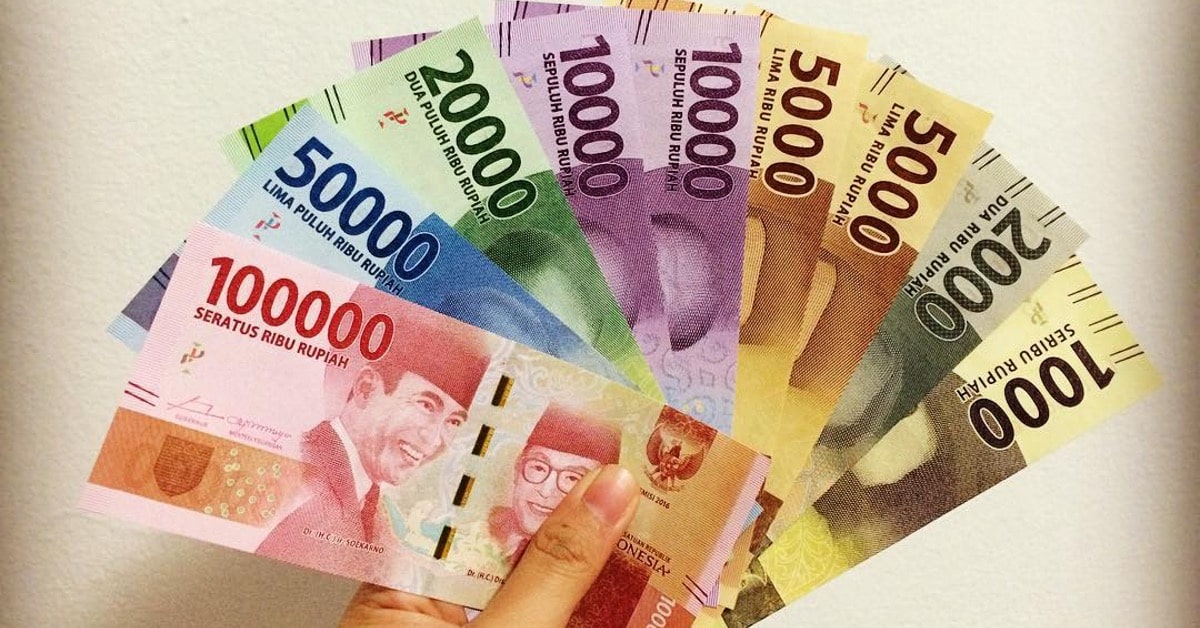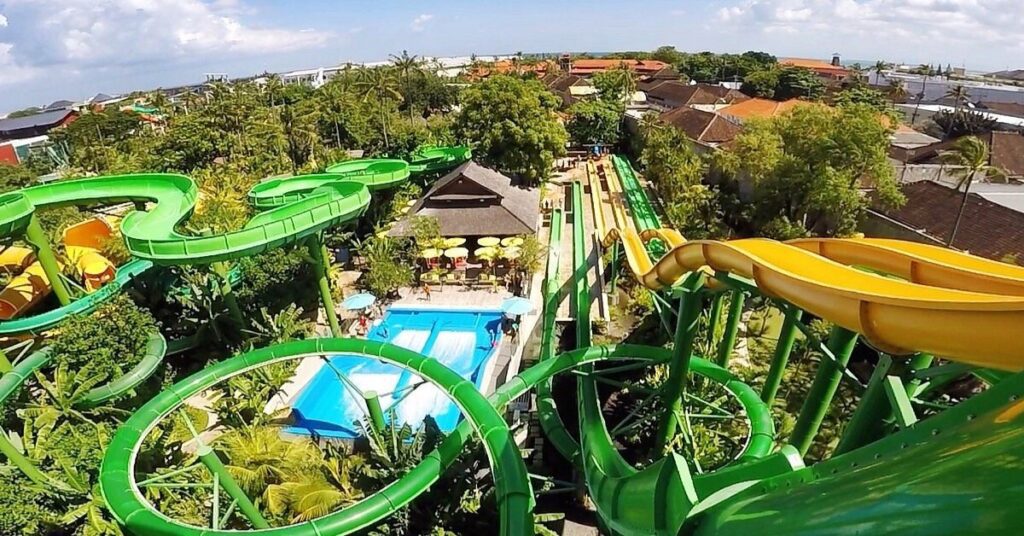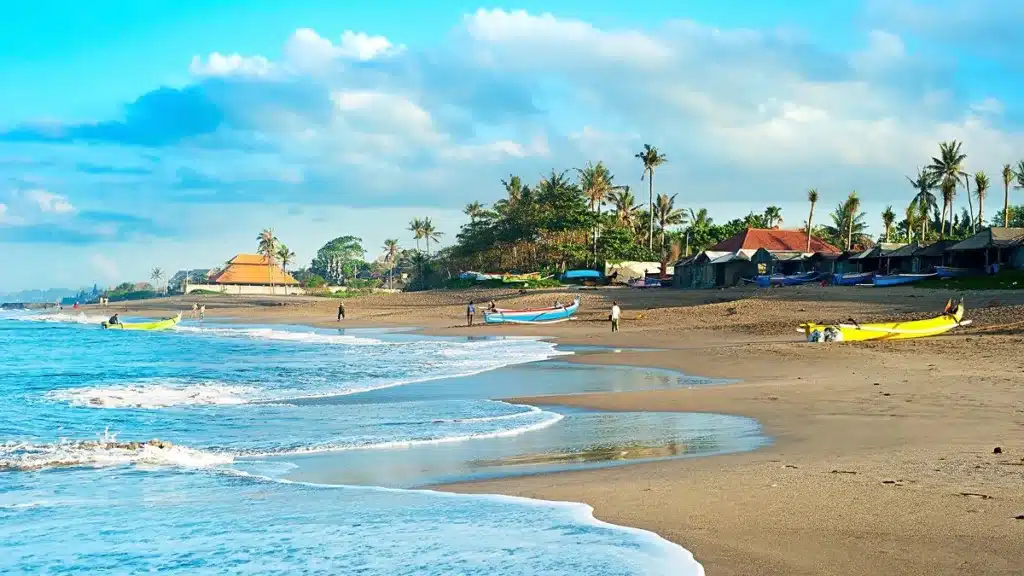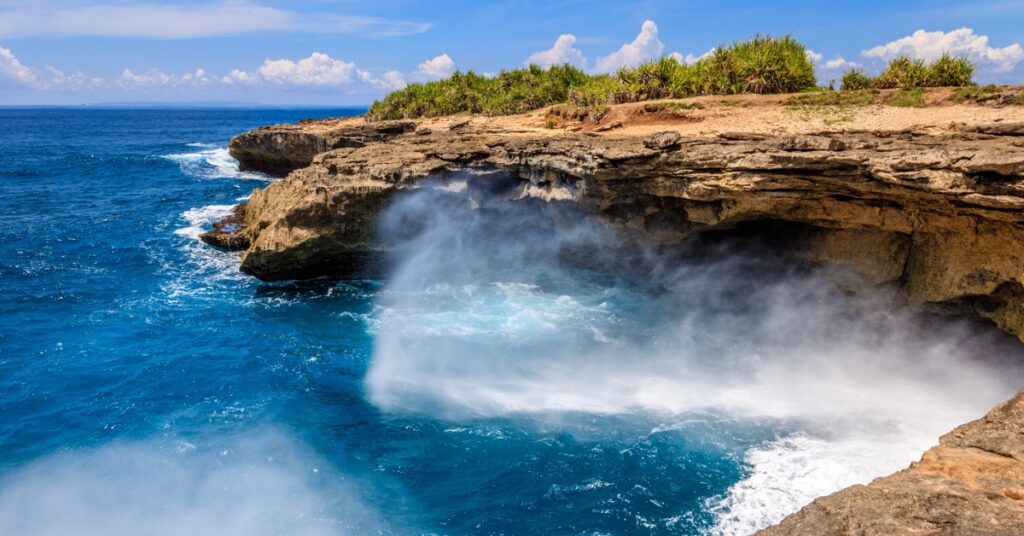The currency in Bali is the Indonesian Rupiah (IDR), symbolized as Rp. It is the only widely accepted currency in Bali and all other Indonesian islands. Indonesian Rupiah banknotes come in denominations of 1,000, 2,000, 5,000, 10,000, 20,000, 50,000, and 100,000, each in different colours for easy identification: yellow, grey, brown, purple, green, blue, and pink, respectively.
Coins are also available, though less commonly used, in 25, 50, 100, 200, 500, and 1,000 denominations. The exchange rate fluctuates, so checking the most current rate before your trip is essential. Major credit cards are accepted in many establishments, especially in tourist areas. Still, it’s advisable to carry some cash for smaller transactions.
For safe money exchange, it’s recommended to use authorized money changers with proper signage and facilities and to be cautious of potential scams.
Here’s a comprehensive guide to understanding Bali Currency:
What is Bali Currency
The official currency of Bali is the Indonesian Rupiah, also denoted as IDR.
Originating from India, “rupyakam” was a classical Indian word for silver that transcended everyday use in Indonesia by being shortened to Rupiah.
Before gaining its autonomy from Holland, this denomination was known under Dutch Indies Rupiah.
While touring Indonesia, you might come across the term “Perak” frequently.
This is another name for Rupiah and can be abbreviated as either Rp or Rs.
- Currency: Indonesian rupiah
- Currency symbol: Rp (Rupiah)
- Central Bank: Bank of Indonesia
- Currency code: IDR
Rupiah Bank Notes
The Indonesian Rupiah comes in different colors and designs, making it easy to identify.
Here’s a list of the banknotes and their colors:
| Currency | Color |
|---|---|
| Rp. 1,000 | Yellow |
| Rp. 2,000 | Grey |
| Rp. 5,000 | Brown |
| Rp. 10,000 | Purple |
| Rp. 20,000 | Green |
| Rp. 50,000 | Blue |
| Rp. 100,000 | Pink |
Bali Currency Related Phrases
Make your vacation to Bali even better by understanding and speaking the language of money!
We have included a guide on prominent notes you’re likely to encounter to make it easy.
This way, you’ll be able to navigate this beautiful country easily!
Indonesian is the primary language among locals in Bali and predominates within the tourism sector, as many Indonesians from other islands visit for work.
However, English is also a commonly spoken tongue in Bali.
Still, to make your travels more authentic—and show off your knowledge of local culture!—we’ve compiled a list of critical money-related phrases you can learn in Indonesian before embarking on your journey!
| English | Indonesian |
|---|---|
| Too expensive! | Terlalu mahal |
| Cheap | Murah |
| How much does this cost? | Berapa harganya? |
| Can I have it for less? | Boleh kurang? |
| Do you speak English? | Bisa bicara bahasa Inggris? |
| Rp 1,000 | satu ribu |
| Rp 2,000 | dua ribu |
| Rp 5,000 | lima ribu |
| Rp 10,000 | sepuluh ribu |
| Rp 20,000 | dua puluh ribu |
| Rp 50,000 | lima puluh ribu |
| Rp 100,000 | seratus ribu |
| Can I pay on credit card? | Anda terima kartu kredit? |
| I don’t have change | Saya tidak punya kembalian |
| Can I have the bill please? | Boleh minta nota? |
Bali Money Tips
As you plan for your vacation in Bali, remember that each nation has its own unique monetary customs.
To ensure a more pleasant trip and avoid any potential awkwardness, consider these tips regarding cultural nuances.
- As a foreigner, you can expect to be offered an inflated price while shopping in Bali. To get the best deal possible, start by proposing your own price of one-third to two-thirds of their initial quote. Don’t forget: if nothing goes as planned and there’s no compromise reached between both parties, it never hurts to walk away! You may come back later on only for the seller to change their stance and offer you something much more reasonable than before.
- Showing gratitude through tipping is unnecessary for Bali, but if you are particularly pleased with the service received, leaving a 10% tip is suitable. Before doing so, however, make sure that your bill does not include an already implemented service charge.
- When exchanging currency in Bali, avoiding national holidays or weekends is strongly recommended. This is because exchange rates are generally not as good during these times since banks close and official rates cannot be accessed.
Bali Travel Money Tips
As a traveller, nothing is worse than being in another country and being robbed.
Being robbed in Bali can happen in several ways; however, some factors must be considered to minimize the risk.
- Bring someone into a money exchange with you to watch the money changeover (a lot can happen in the blink of an eye)
- Have the exchange clerk place each note independently on the bench in front of you for you to take off the bench, do not have them pass the money to you as they may accidentally drop a note.
- Try not to have all your money on you at once; if you do happen to get robbed, you will be left with nothing.
- When carrying money, make sure to put it in several pockets; this way, if you get robbed, only a portion of your money will be stolen.
Bali Currency Exchange Rate
Bali is heavily dependent on tourism, so it tries its best to accommodate the industry.
You may come across your country’s exchange rate in some areas, mainly in hotels or activities like quad biking.
Your final price in IDR will depend on your country’s current Bali currency exchange rate.
The exchange rate for the Indonesian rupiah can vary depending on the location.
You can use the online currency converter tool to get today’s official Bali exchange rate.
However, exchange rates from money changers, banks, or hotels may differ by an average of 3-5%.
Tips for Safe Money Exchange
Safety should be a top priority for any traveler, including exchanging money in a foreign country.
Here are a few tips to minimize the risk of being robbed:
- Bring a friend when exchanging money to keep an eye on the process.
- Ask the exchange clerk to place each note on the bench in front of you for you to take off.
- Don’t carry all your money in one place. Spread it out in different pockets.
- Don’t have the exchange clerk pass the money to you; they may accidentally drop a note.
In conclusion, understanding the local currency in Bali is essential for a smooth and stress-free travel experience.
So remember these tips, and enjoy your time in the Indonesian paradise.
Bali Currency FAQs
ATMs may be found across Bali, in most main tourist locations and larger resorts, however daily withdrawal limits can be quite low and vary between machines.
There are also a number of money changers in the main retail areas that provide competitive rates.
Simply check how much rupiah you should receive for your money and carefully figure out the exchange to ensure the transaction is proper.
Tipping is neither expected nor required in Bali, however the kind Balinese people will be grateful for any additional gratuity you may like to provide for great service.
Diners in more upscale restaurants may see a 15% to 20% premium on their bill to compensate for the 10% government tax.
Although the expense of a tropical vacation abroad may appear to be overly expensive, Bali is well-known for being an exceedingly reasonable destination.
Many frequent Bali visitors return many times every year since their money goes so far.
Moreover, it’s not only cheap food and drink, even though a beer costs about $2.50 and a typical lunch costs approximately $15.
Bali’s shopping options are also very popular, owing to the wide variety of low-cost options offered in local markets and shops.
Clothing, souvenirs, designer replicas, and other items are available at a fraction of the cost.
If you want to unwind, the massages and spa treatments available in Bali are among the most affordable in the world, with second-to-none quality.
Bali is the place to go if you want to pamper yourself without breaking your wallet.
Credit cards are accepted at most large merchants in Bali, however, cash is necessary for transactions in local markets.
You’ll probably need cash to spend at local stores as well, but most resorts accept credit cards.
You should contact your bank before traveling to ensure that your credit card may be used freely in Bali and that you are informed of any foreign currency conversion costs that may apply.
The currency in Bali is the Indonesian Rupiah, the currency code for Rupiah is IDR.







